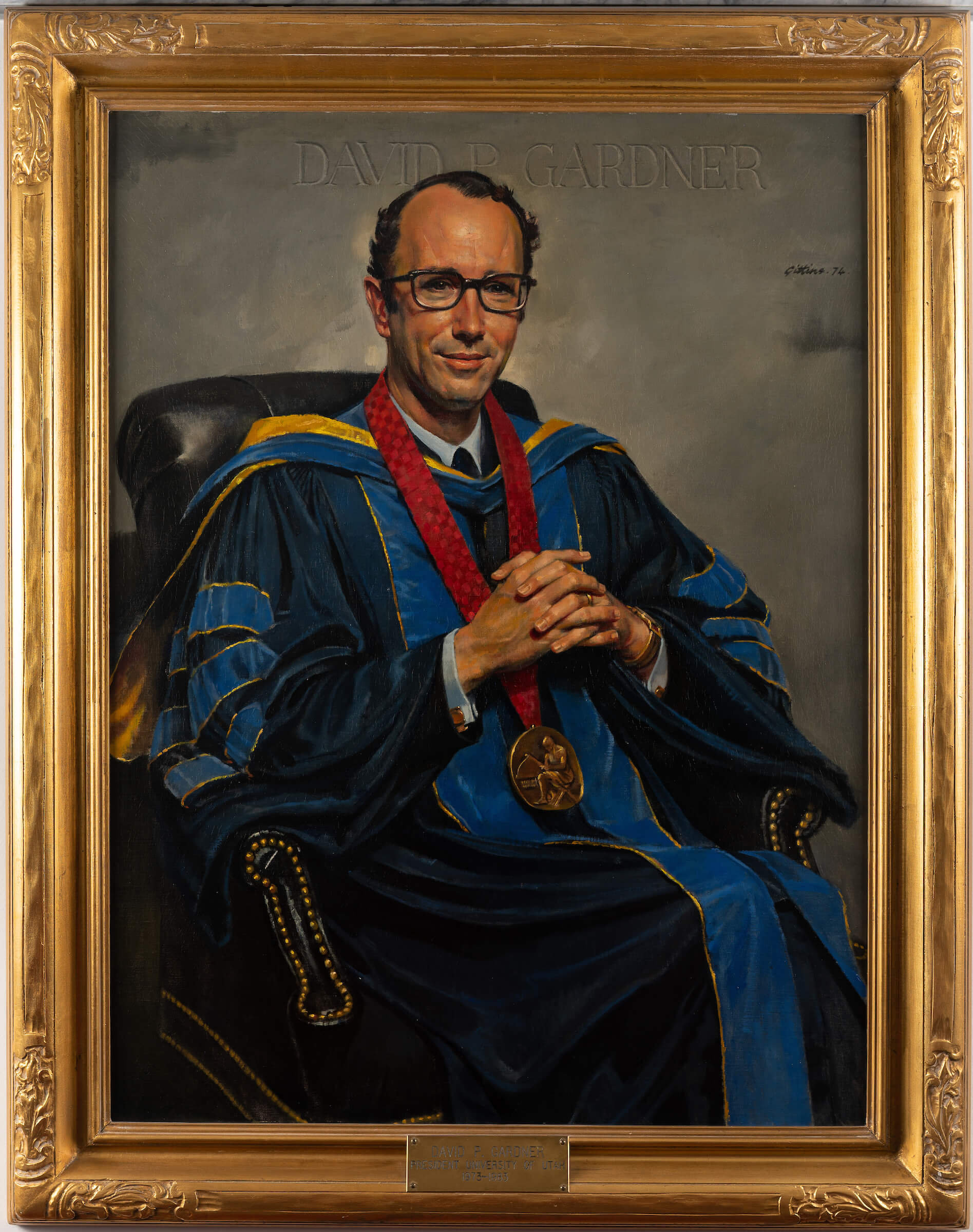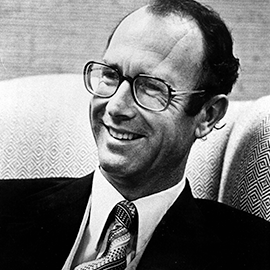
 David Pierpont Gardner, 10th president of the University of Utah, was a nationally recognized expert and thought leader in education policy and administration. Gardner was instrumental in elevating the U’s reputation and the quality of its education. Gardner enacted stricter admissions requirements, raising the caliber of students admitted to the university and resulting in higher graduation rates.
David Pierpont Gardner, 10th president of the University of Utah, was a nationally recognized expert and thought leader in education policy and administration. Gardner was instrumental in elevating the U’s reputation and the quality of its education. Gardner enacted stricter admissions requirements, raising the caliber of students admitted to the university and resulting in higher graduation rates.
A major focus of Gardner’s administration was to strengthen the U’s role as a major research institution. Gardner raised the university’s budget from $102 million to $264 million and increased faculty salaries significantly, making the U competitive with the nation’s top research universities. He led efforts to secure $50 million in state and private funds to expand the U’s hospital and medical school. Major medical breakthroughs, including the first artificial heart, occurred during his tenure. Income from patents and commercial licenses on inventions from university faculty grew to millions of dollars.
During his tenure, Gardner chaired the U.S. Department of Education’s Commission on Excellence in Education, which authored the landmark report A Nation at Risk. The publication sparked a national effort to reform U.S. public schools.
After serving as U president, Gardner led the nine-campus University of California system from 1983-1992. Gardner also served as president of the William and Flora Hewlett Foundation from 1993 to 1999 and as chairman of the board of the J. Paul Getty Trust from 2000 to 2004. Gardner earned a bachelor’s degree in political science, history and geography from Brigham Young University. He earned an MA in political science and a PhD in higher education from UC Berkeley.
